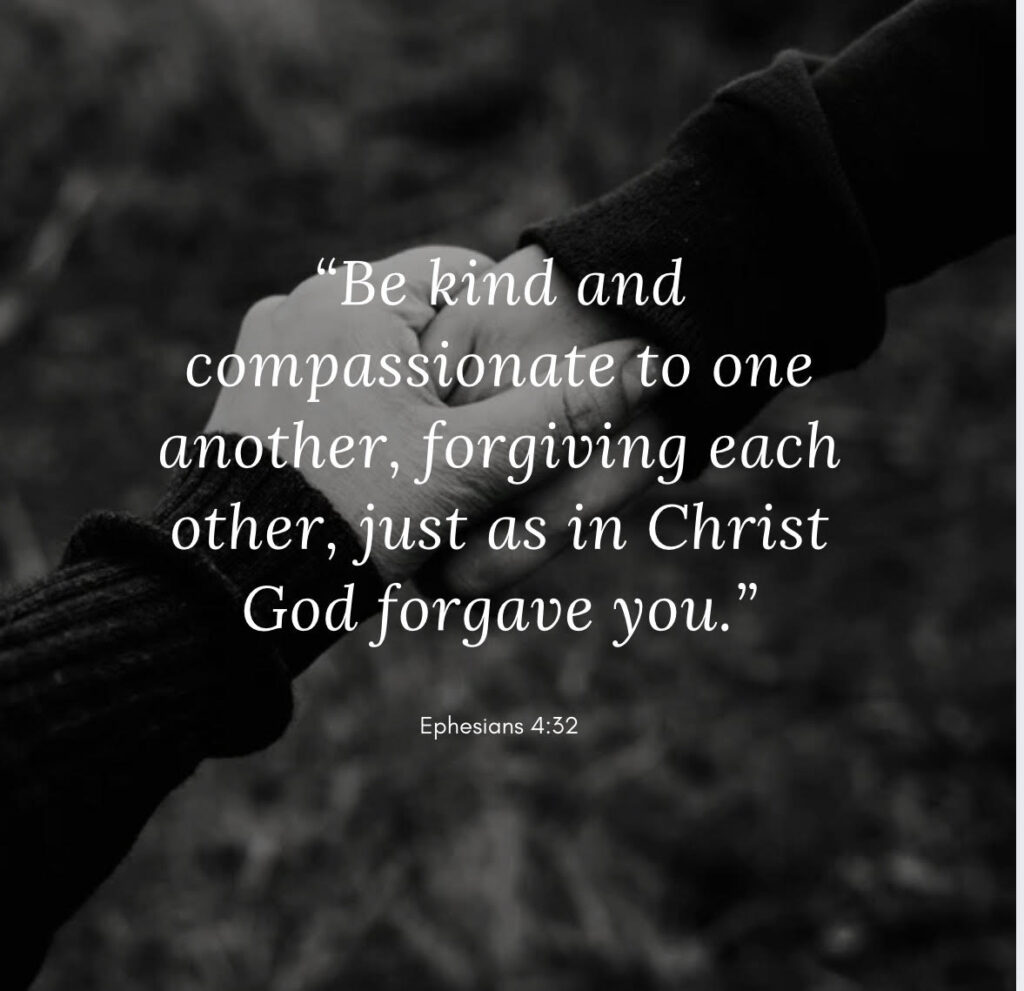Most of us can remember the exact moment, word, or person that triggered our eating disorder. Maybe it was a parent, grandparent, significant other, or sibling. Maybe it was a teacher, friend, coach, or youth leader. Sometimes it’s media — a book, a magazine (do people still read those?), Instagram, TikTok, or another platform. For many of us, it wasn’t just one thing — it was a combination that finally pushed us over the edge.
If you’re walking through an eating disorder right now, first: I am so sorry. Second: I am so glad you are here.
Like me, you may know the exact moments that led to your tipping point. For many, forgiveness feels impossible — especially toward the people or words that cut so deeply.
My Struggle with Forgiveness
For years, I carried unforgiveness in my heart. I wouldn’t have said it out loud, but my behavior revealed it: anger, mistrust, outbursts, and emotional distance from the person who had hurt me.
The truth? They likely didn’t even realize the weight of their words. Or maybe they did. Either way, it didn’t erase the pain.
But as Christians, we are called to something different: to forgive. Even to love our enemies.
Important note: If this involves abuse of any kind (physical, emotional, sexual, or otherwise), this is not a “love your enemy” situation. Please seek help from the police, a therapist, a doctor, a trusted friend, or a pastor who can walk with you. Forgiveness does not mean enduring abuse.
But if the hurt came from a careless comment, a moment of insensitivity, or words that stuck longer than they should have, forgiveness — though painful and difficult — is deeply healing.
What the Bible Says About Forgiveness
Choosing not to forgive doesn’t mean you lose your salvation. But it does create distance between you and God.
When we ask God to forgive us, He does. Always. And if we desire a heart like His, then extending forgiveness — even when it feels impossible — is part of walking in obedience.
Jesus said in Matthew 6:14–15:
“For if you forgive others their trespasses, your heavenly Father will also forgive you, but if you do not forgive others their trespasses, neither will your Father forgive your trespasses.”
Forgiveness isn’t optional. It’s not just a good idea — it’s a command. Not because it’s easy, but because it softens our hearts, tears down walls, and draws us closer to God.
If you feel convicted about someone you haven’t forgiven — maybe even the person who triggered your eating disorder — begin praying about how to release that hurt today.

What If Forgiveness Isn’t Possible in Person?
Sometimes forgiveness doesn’t mean confrontation.
- What if the person isn’t alive anymore?
- What if they don’t know what they did?
- What if being near them isn’t safe?
God sees your heart. You can forgive without ever speaking the words directly. Write a letter and never send it. Pray through your feelings. Journal. Ask the Holy Spirit to guide you in releasing bitterness.
For me, the person who triggered my disorder never knew. I don’t carry bitterness anymore. I love them. I want good for them. And I don’t feel the need to confront them unless the opportunity arises. God knows my heart is free of resentment — and that’s enough.
Steps Toward Forgiveness
If you’re struggling, here are some steps that may help:
- Pray to the Holy Spirit — ask Him to reveal who you need to forgive.
- Ask for wisdom — what should you say (if anything)? What boundaries should remain?
- Process with God — journal or pray through whether forgiveness means writing a letter, having a conversation, or simply surrendering it to Him.
- Choose forgiveness — even if feelings don’t change immediately, begin walking in the decision.
This list may feel simple — but forgiveness is rarely easy. For some, decades of hurt can harden the heart. If that’s you, I see you. I’m praying God softens your heart and leads you into healing.
Forgiveness Doesn’t Mean Reconciliation
Forgiving someone doesn’t mean you need to invite them back into your life. It doesn’t mean you trust them, or that you’re suddenly “best friends.”
Forgiveness simply means releasing the bitterness, anger, and resentment you’ve carried. It means blessing them with grace so that you can move forward in your recovery and relationship with God.
A Verse to Hold On To
“Be kind and compassionate to one another, forgiving each other, just as in Christ God forgave you.”
— Ephesians 4:32


Leave a Reply